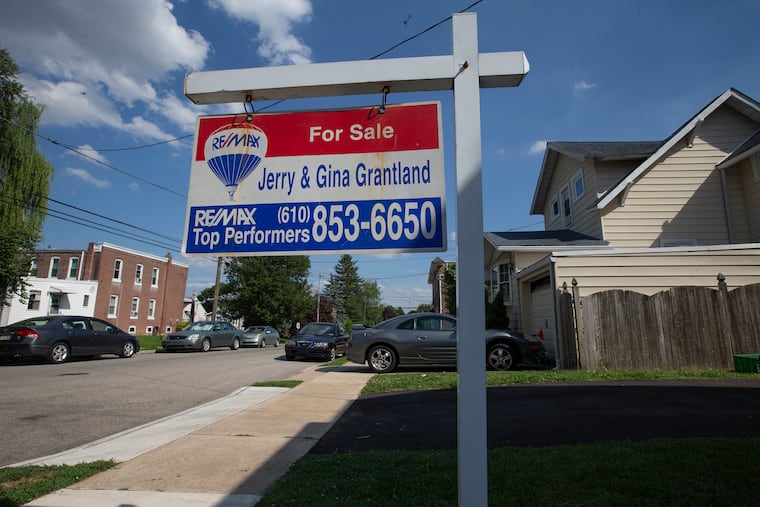Buying a home? Here’s what to expect at the closing.
The final step before becoming a homeowner includes lots of documents, signatures and fees.

Closing on a house marks the beginning of a new chapter, but the final step before becoming a homeowner includes lots of documents, signatures and fees. Here’s how it works.
What are closing costs?
Closing costs are the fees and expenses you must pay before becoming the legal owner of a house, condo or townhouse. According to Freddie Mac, you can expect to pay 2% to 5% of the mortgage loan in closing costs. Fees could be changed for origination, underwriting, appraisal, credit report, and title search.
How much does it cost to close on a house?
Closing costs are typically thousands of dollars and vary widely by state. Nationally, the average closing costs in 2019 were $3,339 excluding taxes, and $5,749 with taxes, according to ClosingCorp.
Lenders are required to provide an estimate of your closing costs early in the loan process, and, closer to the closing date, the amount you can expect to bring to closing. Closing costs can be rolled into the mortgage amount or paid upfront to avoid paying additional interest. If you roll the closing costs into the mortgage, it’s important to note that, although it helps avoid handing over additional cash, the costs will incur interest over the long term.
How long does it take to close on a house?
As of May, the average time was 47 days, and 44 days for refinancing, Ellie Mae reports.
Applying for a mortgage preapproval before you start house shopping can help you close faster, because some of the financial review and verification processes will be completed ahead of time, says John Schleck, a senior vice president in consumer lending at Bank of America in Charlotte, N.C.
Planning for closing is crucial, especially if you are renting and your lease is almost up. Renters should aim to close toward the middle to end of the month to avoid paying rent for a home you aren’t using.
The homebuyer, though, isn’t the only party who dictates the timeline. If the seller is unable to vacate the home quickly, the closing process may take longer.
How to prepare for the closing
Buyers should obtain beforehand all the documents that the loan officer will request. They also should make sure nothing in their finances changes before closing day, because the lender may (and often does) make last-minute checks of vital information. Changing jobs is one mistake to avoid in the closing process, which would require the lender to verify the new employer.
In addition, “you should refrain from making any large undocumented deposits such as cash deposits and opening any new credit card accounts,” says Jared Maxwell, vice president of consumer direct lending at Embrace Home Loans in Middletown, R.I.
What you will need at the closing
At the closing, you will have two primary responsibilities:
Signing legal documents. This process falls into two categories: the agreement between you and your lender regarding the terms and conditions of the mortgage, and the agreement between you and the seller transferring ownership of the property. Be sure to read all documents carefully before signing them. Do not sign forms with blank lines or spaces.
Pay closing costs and escrow items. Numerous fees are associated with getting a mortgage and transferring property ownership. The funds are usually a certified/cashier’s check made out to the escrow company or a wire transfer of funds to the banking institution. Personal checks are often not allowed.
Bring government-issued identification, such as a driver’s license or passport.
Who is present at the closing
Closing procedures vary from state to state and even county to county, but the following parties will generally be present at the closing (sometimes called the settlement meeting): closing agent, who might work for the lender or the title company and conducts the meeting; lawyers; title company representative; home seller; real estate agents; you (known as mortgagor) and lender (mortgagee).
What to expect on the day of closing
There are three main documents to sign during closing. The first is a deed of trust or mortgage, which is a document that puts a lien on your property as collateral for your loan. The second is the promissory note, a legal agreement to pay the lender, including when you will make your payments and where you will send them. The last is the closing disclosure, an itemized list of your final credits and charges.
At the closing, you will receive the following key documents:
Loan estimate. This contains important information about your loan, including terms, interest rate and closing costs. Make sure all the information is correct, including the spelling of your name.
The closing disclosure. Like the loan estimate, the closing disclosure outlines details of your mortgage. You should receive this form at least three days before closing, so you can compare what’s on the loan estimate to the closing disclosure.
The initial escrow statement. This form contains any payments the lender will pay from your escrow account during the first year of your mortgage. These charges include taxes and insurance.
Mortgage note. This document states your promise to repay the mortgage. It indicates the amount and terms of the loan and what the lender can do if you fail to make payments.
Mortgage or deed of trust. This document secures the note and gives your lender a claim against the home if you fail to live up to the terms of the mortgage note.
Certificate of occupancy. If you are buying a newly constructed house, you need this legal document to move in.
Buyers will also conduct a final walk-through with their agent to confirm the home is in the condition promised.